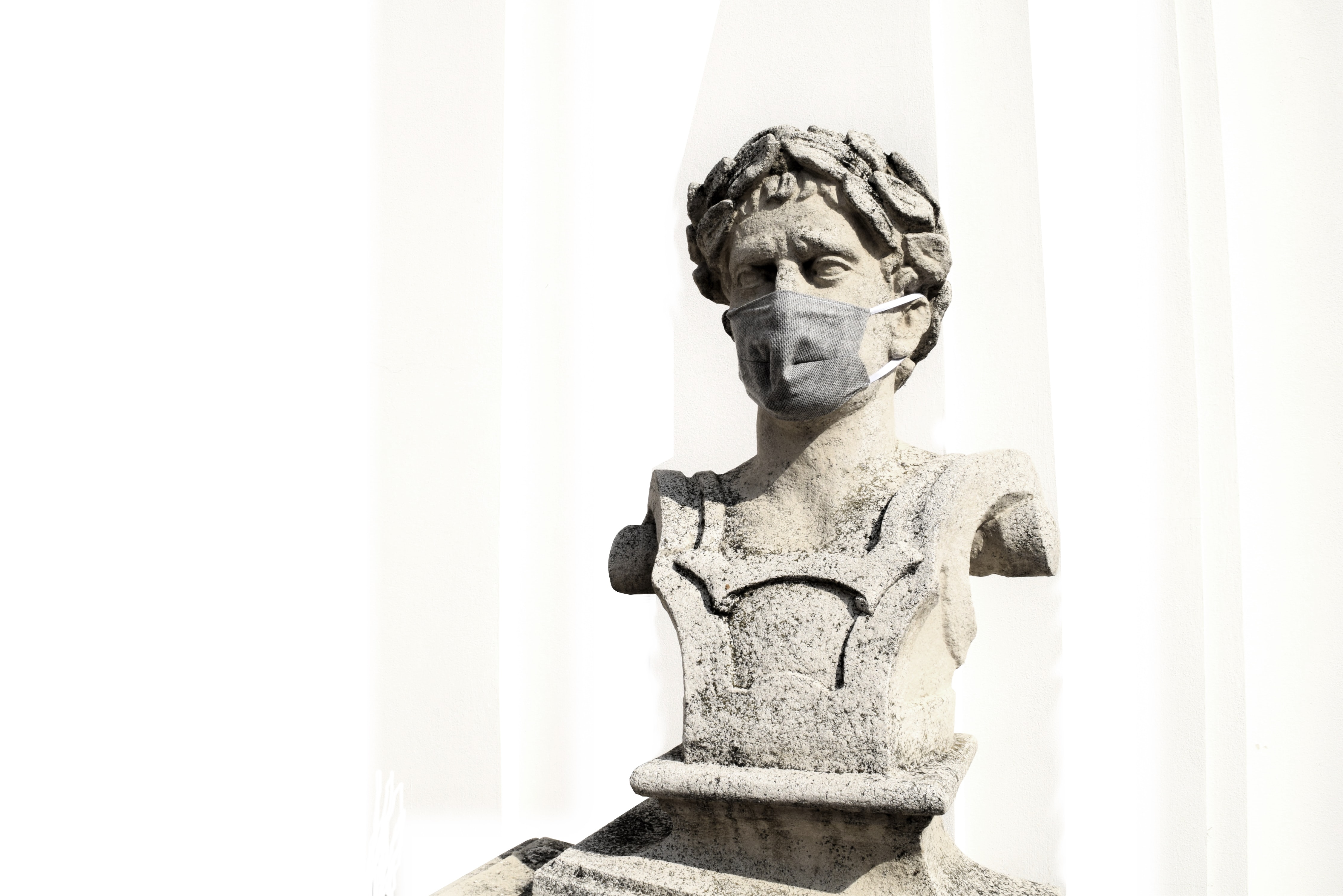Welcome to our special section, Thrive on Campus, devoted to covering the urgent issue of mental health among college and university students from all angles. If you are a college student, we invite you to apply to be an Editor-at-Large, or to simply contribute (please tag your pieces ThriveOnCampus). We welcome faculty, clinicians, and graduates to contribute as well. Read more here.
As a philosophy major at Wesleyan University, I was accustomed to philosophy classes where we read a philosopher, learned the tenets of their philosophical theory, and then wrote a paper about that theory. From this perspective, philosophers and their ideas seemed rather strict and unyielding. As a result, these philosophies seemed hard to apply to my own life. However, through a series of “Live Like a Philosopher” exercises that we undertook as part of a newly-piloted course at Wesleyan, Living a Good Life, I realized where many philosophical teachings were more adaptable and thus applicable to my life. In particular, I found the Confucian teachings about anxieties and the Stoic teachings about those things that are within and outside of my control useful to living a good life in the modern COVID world.
During our Live Like a Confucian week, one of our assignments was to separate our life-long worries from our daily anxieties. Confucian philosopher Mengzi said that “A superior person has life-long worries but not daily anxieties” (Mengzi, Essential, 4B28). According to Mengzi life-long worries, such as being a good person, are beneficial because they improve one’s character, but daily anxieties, being outside of one’s control, are not useful. This philosophy, taken literally, seemed to neglect the worries which, although not life-long, are long-lasting, and necessary to address. However, having lived like a Confucian, I realized through practice that this teaching is less about life-long anxieties and daily anxieties specifically, and more about an overall categorization of anxieties. Mengzi is right that there are many anxieties that are short-term and beyond our control which will only impede us if we linger on them. Alternatively, there are other concerns that, although not lifelong, have longer-term consequences and need to be addressed in order to live a good life.
COVID is full of such distinguishable concerns. Although COVID will not be a lifelong concern (hopefully…) it has proven to be a long-term problem, and the concern for one’s health and the health of others is an important and valid concern which should be responded to by wearing a mask, social distancing, etc. On the other hand, there are concerns that COVID creates which are not long-term concerns and if not given up, these can turn into unhelpful paranoia. For example, throughout the semester, Wesleyan tested students biweekly, and whenever I got an email notifying me that my COVID test results were available, I immediately got paranoid that I had COVID even if I had no reason to believe I had been exposed. I would anxiously wait for the results to open as I convinced myself that I definitely had COVID. These sorts of COVID anxieties did not aid me in acting more safely and only caused unnecessary stress. In this way, Mengzi’s teachings about distinguishing between needless anxieties vs. important worries, when applied less literally, can be very applicable and useful in navigating a COVID world.
The other teaching that I found unhelpful while reading, but far more useful when put into practice, was the Stoic approach to those things within and outside of one’s control. In addressing this issue, the Stoic philosopher Epictetus asked “First and foremost: does it involve the things up to us, or the things not up to us? And if it involves one of the things not up to us, have the following response to hand: ‘Not my business’” (Epictetus, Enchiridion, 7). When I first read this in a different philosophy course, I thought it was entirely unrealistic. However, while spending a week living like a Stoic, I realized that letting go of what is beyond your control did not require a complete relinquishing of responsibility. Instead, it allowed me to liberate myself from those problems which I could not improve and only fruitlessly worry about.
This perspective can be very hard to adopt during COVID but is also extremely important. There are many things that one can do to keep themself and others safe from COVID, as mentioned above. However, there are other variables to the spread of COVID which are beyond my control. For example, I found it discouraging towards the end of the semester when I learned that multiple sports teams were experiencing COVID outbreaks. My first reaction was to be upset about this since it could jeopardize the rest of the campus’ safety as well as our ability to remain on campus. However, with no athlete friends to address the problem nor any connection to that social sphere, there is nearly nothing I can do to fix the problem, and worrying about it will only negatively affect me. Such a mindset is very hard to adopt given the high stakes of the pandemic, but when put into practice, I realized the importance of letting go of those things outside my control. Overall, this course has shown me that philosophical teachings are much more applicable than they may appear on the page and may actually help as we navigate this unprecedented pandemic.
Subscribe here for all the latest news on how you can keep Thriving.
More Thrive Global on Campus:
What Campus Mental Health Centers Are Doing to Keep Up With Student Need
If You’re a Student Who’s Struggling With Mental Health, These 7 Tips Will Help
The Hidden Stress of RAs in the Student Mental Health Crisis


